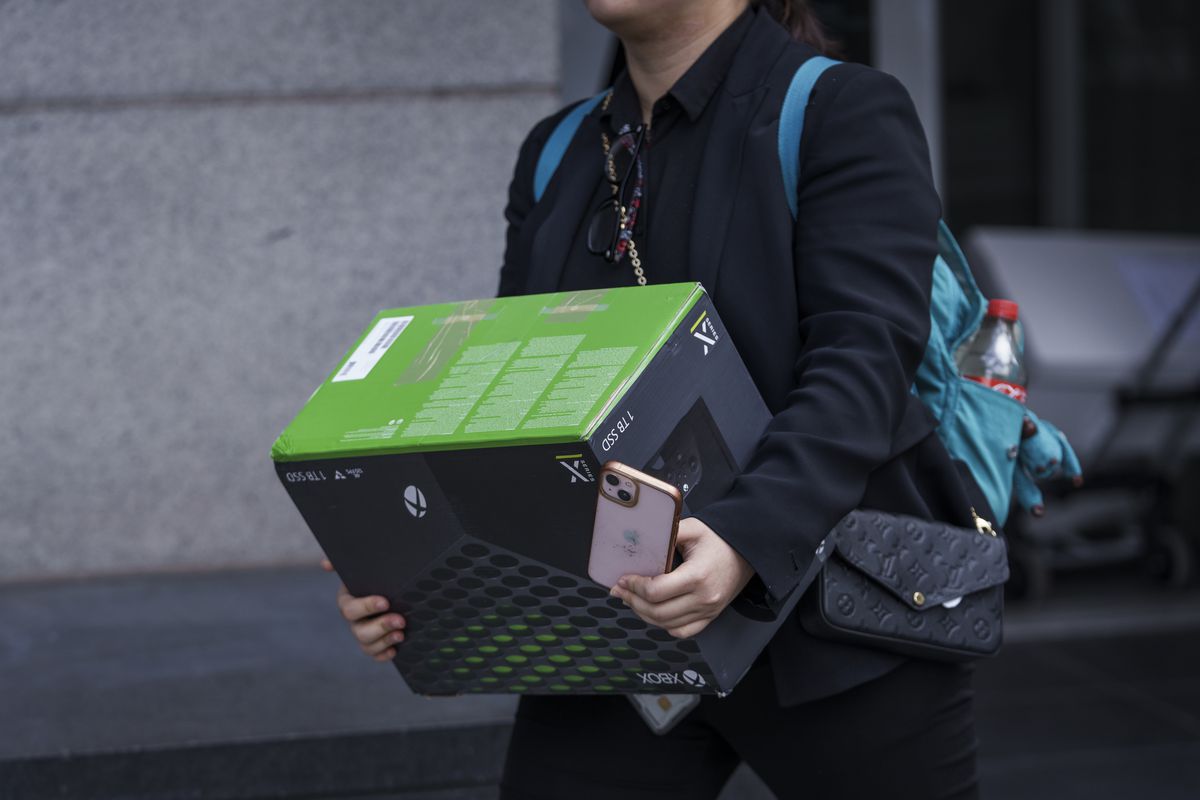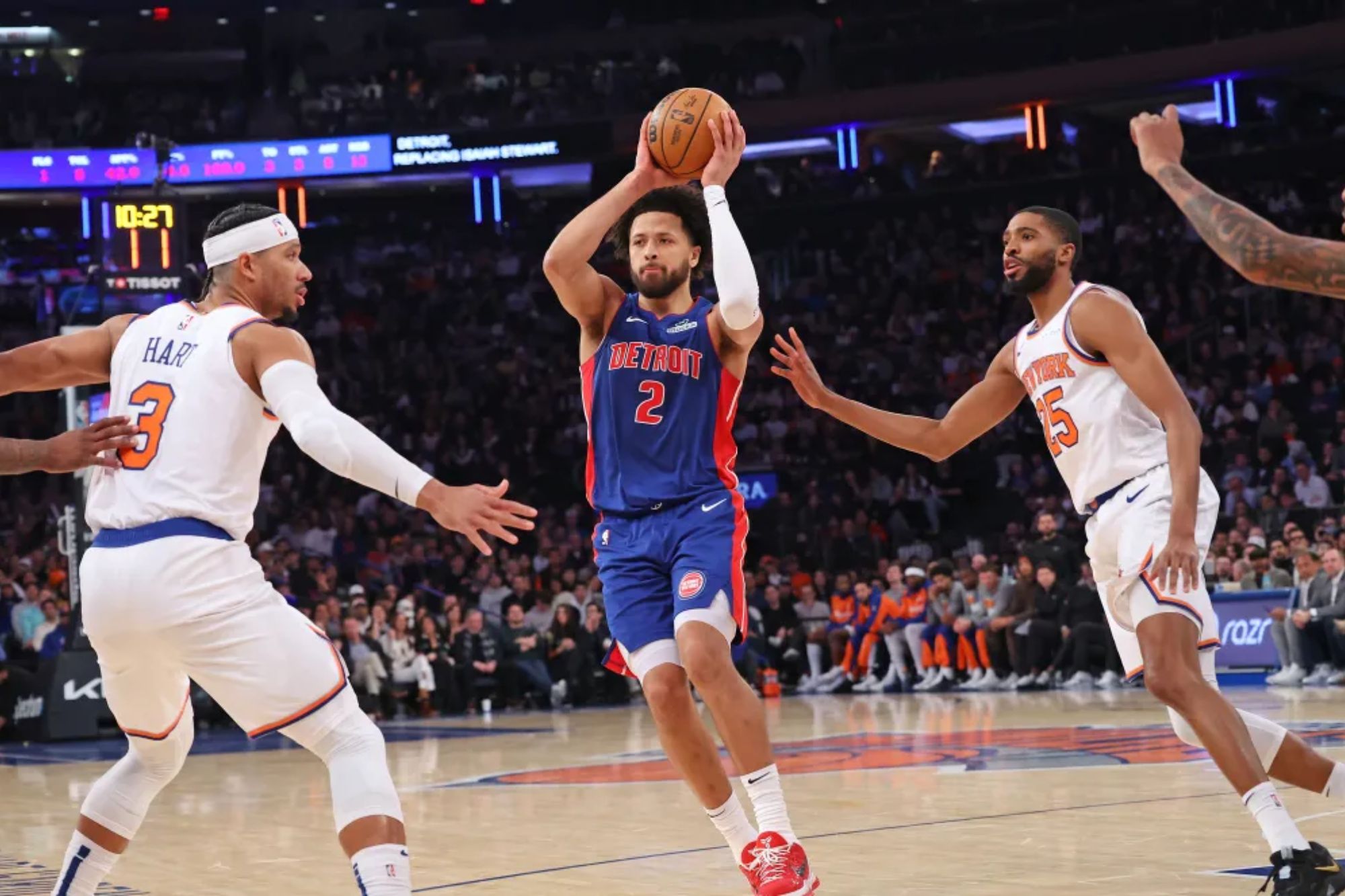FTC's Appeal Challenges Judge's Ruling On Microsoft-Activision Merger

Table of Contents
2. Main Points:
2.1. The Initial Judge's Ruling and its Rationale:
H3: Key Points of the Judge's Decision: In July 2023, Judge Jacqueline Scott Corley ruled in favor of Microsoft's acquisition of Activision Blizzard. Her decision hinged on a critical assessment of the competitive landscape within the video game market. The judge concluded that the FTC had failed to provide substantial evidence demonstrating that the merger would substantially lessen competition. The ruling emphasized that the merger wasn't likely to harm consumers, a central argument in antitrust cases.
- The judge discounted the FTC's concerns regarding Microsoft's potential to make Activision Blizzard's popular games, particularly Call of Duty, exclusive to Xbox consoles.
- She cited Microsoft's commitments to keep Call of Duty available on PlayStation, along with other platforms, as mitigating the potential anti-competitive effects.
- The judge's analysis focused heavily on the competitive dynamics between Xbox, PlayStation, and the broader PC gaming market.
H3: Criticisms of the Judge's Decision: The FTC and other critics immediately challenged several aspects of Judge Corley's ruling. They argued that the judge underestimated the significance of Microsoft's market power and its potential to leverage its acquisition to stifle competition. Specifically, critics pointed to:
- Allegations that the judge downplayed the potential for Microsoft to make Call of Duty a substantially worse experience on competing platforms.
- Concerns that the judge insufficiently considered the long-term implications of Microsoft's market dominance and potential impact on other game developers.
- Arguments that the judge failed to fully analyze the potential for Microsoft to use the acquisition to leverage its market power in cloud gaming.
2.2. The FTC's Grounds for Appeal:
H3: Allegations of Anti-Competitive Behavior: The FTC's appeal centers on its allegations that the merger would allow Microsoft to engage in anti-competitive practices, significantly harming competition in the gaming industry. The FTC argues that:
-
Microsoft's acquisition of Activision Blizzard would give them control over extremely popular franchises like Call of Duty, Candy Crush, and World of Warcraft, allowing them to limit access or degrade the experience on competitor's platforms.
-
The merger could lead to higher prices for gamers and less innovation, as Microsoft wouldn't face the pressure of competition to innovate and offer competitive pricing.
-
The acquisition of Activision Blizzard represents a major step in consolidating power within the gaming industry, potentially harming smaller developers and publishers.
-
Specific Examples: The FTC highlighted Microsoft’s past actions regarding exclusive content deals, arguing that this behavior would intensify after the merger.
H3: Legal Arguments in the Appeal: The FTC's appeal utilizes established legal precedents under U.S. antitrust laws, namely the Clayton Act and the Sherman Act. The FTC’s legal strategy involves:
- Challenging the judge’s assessment of the competitive landscape, arguing that she didn't fully account for Microsoft's substantial market power.
- Providing additional evidence to demonstrate the potential for anti-competitive behavior post-merger, including internal Microsoft communications.
- Highlighting the precedent-setting nature of this case and arguing for a stricter interpretation of antitrust regulations in the context of large tech mergers.
2.3. Potential Outcomes and Implications of the Appeal:
H3: Scenarios for the Appeal: Several scenarios are possible:
-
Upholding the initial ruling: The appeals court could affirm Judge Corley's decision, allowing the merger to proceed.
-
Reversing the ruling: The appeals court could overturn Judge Corley’s decision, blocking the merger.
-
Remand: The appeals court could send the case back to the district court for further consideration, potentially requiring additional evidence or a reassessment of the judge's findings.
-
Implications: Each outcome would have profound implications for Microsoft, Activision Blizzard, the gaming industry, and consumers. A reversal could set a critical precedent for future tech mergers.
H3: Impact on Future Mergers & Acquisitions in the Tech Industry: The FTC's appeal carries significant weight, influencing how future mergers and acquisitions are evaluated.
- A ruling against Microsoft could lead to stricter scrutiny of large tech mergers, potentially slowing down consolidation within the gaming and broader tech industries.
- Increased regulatory oversight might force companies to abandon or significantly alter their plans for acquisitions.
- It might encourage more proactive antitrust enforcement by regulatory bodies worldwide.
3. Conclusion: The Future of the Microsoft-Activision Merger After the FTC's Appeal
The FTC's appeal against the Microsoft-Activision merger is a pivotal moment for antitrust law and the future of the gaming industry. The arguments presented by both sides highlight the complexities of regulating mergers in the rapidly evolving tech landscape. The outcome will have far-reaching consequences, shaping not only the fate of this specific merger but also the regulatory approach to future tech acquisitions. The uncertainty surrounding the outcome is considerable, emphasizing the significance of staying informed. Follow our updates on the FTC’s appeal to keep track of this landmark antitrust case affecting the Microsoft-Activision merger, and understand how this impacts the future of gaming.

Featured Posts
-
 Individual In Custody Gsw Campus Safe All Clear
May 15, 2025
Individual In Custody Gsw Campus Safe All Clear
May 15, 2025 -
 Dodgers Offensive Inconsistency Exposed In Cubs Loss
May 15, 2025
Dodgers Offensive Inconsistency Exposed In Cubs Loss
May 15, 2025 -
 Knicks Overtime Heartbreak A Narrow Escape
May 15, 2025
Knicks Overtime Heartbreak A Narrow Escape
May 15, 2025 -
 Ftcs Appeal Challenges Judges Ruling On Microsoft Activision Merger
May 15, 2025
Ftcs Appeal Challenges Judges Ruling On Microsoft Activision Merger
May 15, 2025 -
 Ufc 314 Chandler Predicts Pimblett Will Struggle With His Fight Pace
May 15, 2025
Ufc 314 Chandler Predicts Pimblett Will Struggle With His Fight Pace
May 15, 2025
